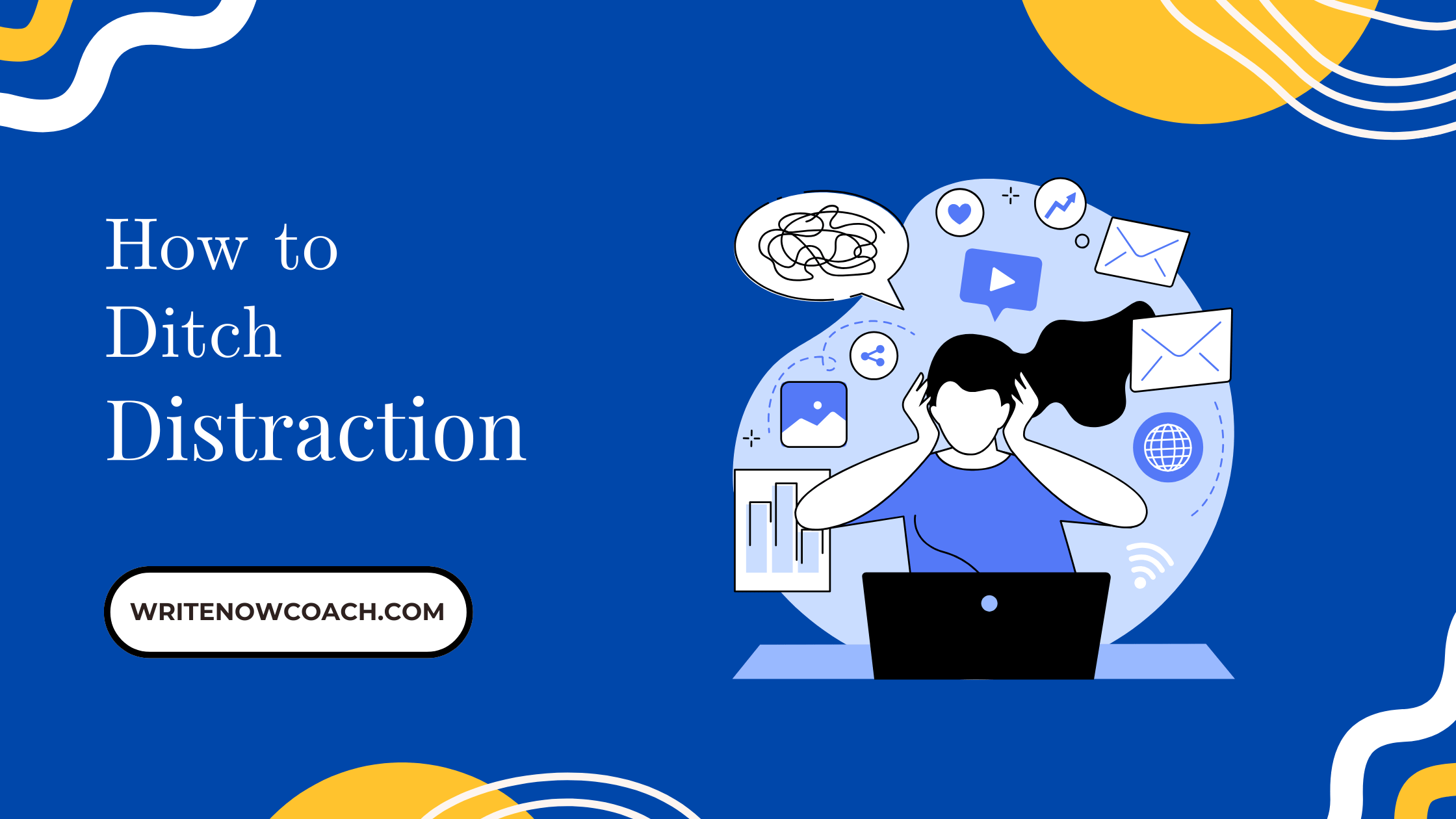How to Ditch Distraction
by Rochelle Melander
Distracted from distraction by distraction.
– T.S. Eliot

Every day, I talk to people who want to write but can’t seem to get traction on their project. In the next few weeks, I’ll talk about the many obstacles we face and how to overcome them.
The biggest obstacle I hear right now is this: you’re distracted.
You are not alone. And it’s not your fault.
Stop blaming yourself
Distractions happen. When we understand that distractions are the RULE rather than the EXCEPTION, we can find a solution. We’re not broken. We need a better plan.
Here’s my plan to deal with distraction and write.
Create a writing bubble
As a society, we put a bubble around certain events like attending plays or movies. For the most part, we agree to turn off our cell phones and focus on the performance. We need to create this kind of a bubble around our writing time. Schedule time to write each day—then hide your phone, turn off social media, and shut down the internet.
Track distractions
You’ve created a writing bubble. But here’s the thing: you’re still going to get distracted. Just like in meditation, we overcome distraction by refocusing. Even if it takes 100 times. Distractions come in two varieties: external and internal. Your job: discover what distracts you.
External distractions
What kinds of external interruptions distract you? Phone calls and texts? Children, animals, and delivery people? Piles of papers?? Make a list.
Internal distractions
What internal distractions pull you away from your work? Common triggers include unfinished business, shiny object syndrome, doubt and fear, and the internal critic.
Analyze distractions
In order to ditch distraction and focus, you need to know WHAT distracts you and WHY. Review your writing sessions from the last week and note what distracted you. Consider:
+What triggered you to lose focus and become distracted?
+Did you get distracted by something internal or external?
+When you got distracted, what did you shift your focus to?
+If you did get back to work, what tools or practices helped you?
Make a plan
What helps you move forward even when you doubt yourself, feel anxious, or get bored? Take a look at my list of common tools and use anything that works for you. Or add your own.
+Mind-mapping or listing possible solutions
+Working on a different part of the project
+Committing to writing a terrible paragraph
+Creating a positive mantra
+Talking back to negative voices
+Feeling the feelings and moving forward
+Do a timed writing session.
+Change environment.
+Gently ask yourself to refocus.
Bonus tool: Add a Distraction Block
Two years ago, I did the Whole30—an eating program where you eliminate alcohol, added sugars, grains, legumes, dairy, and processed foods. I attribute my success to two things. First, I had a Whole30 buddy doing it with me. That support was essential. Second, I cleaned out the cupboard. I didn’t have to reach past my favorite snacks (cookies! crackers!) to get a handful of dried fruit.
You need the same kind of tool for your distractions. What BUFFERS can you use to get between you and your key distractions? This might require a little creative planning.
If you’re tempted to surf online or check email when you’re supposed to be working you might:
+Use an internet blocker like Freedom, Forest, and StayFocused.
+Sign out of your favorite social media sites and take them off your phone.
+Sign out of email.
If you’re distracted by your environment (your dogs keep asking for stuff, your family won’t stop talking to you, you can’t stop cleaning), you might:
+Work at a library or coffee shop.
+Put a “Do not disturb” sign on your door.
These are just a few tools. You may need to create your own distraction-busting buffer.
I can help
If you need support for overcoming distraction or figuring out the perfect distraction blocker, connect with me for a consultation.









